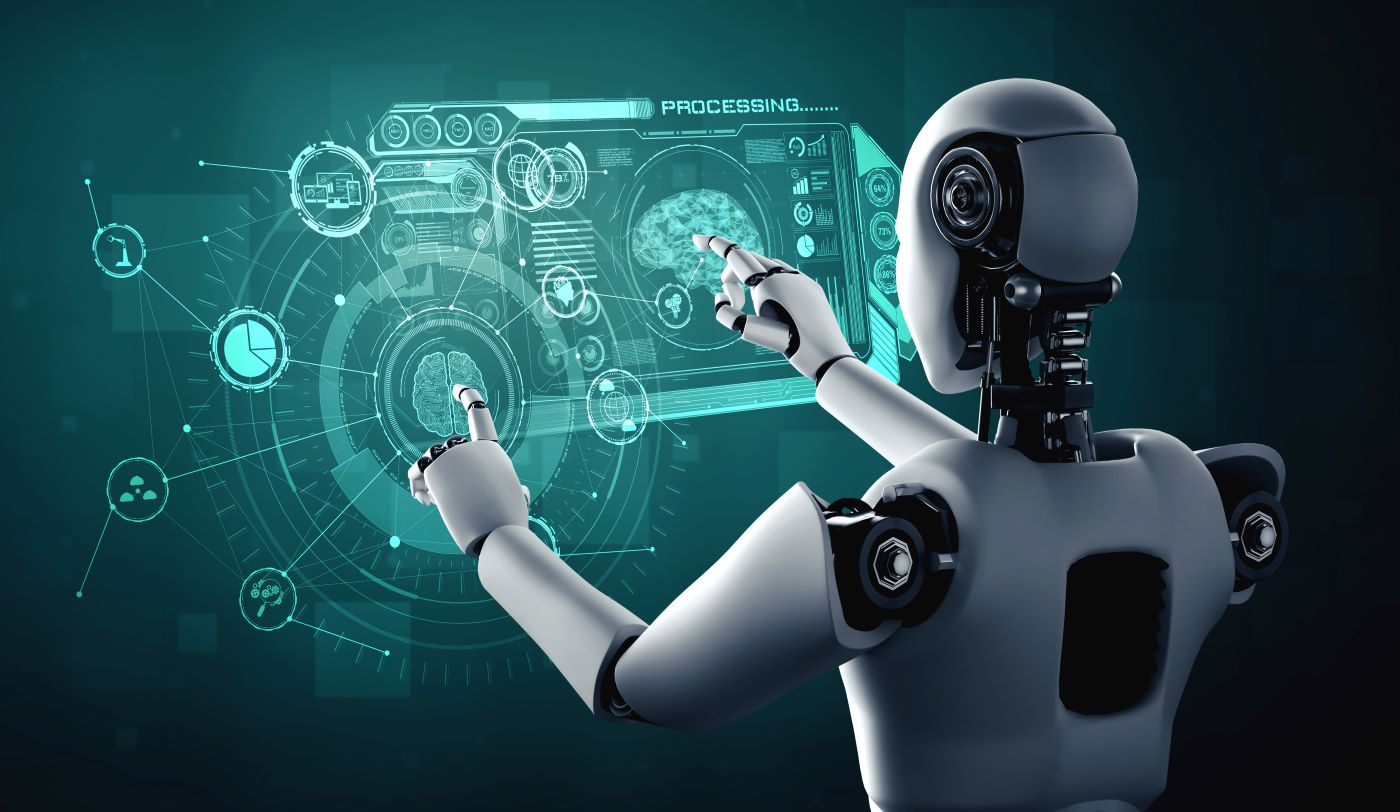In a society that is driven by technological advancement and innovation, industries have undergone a transformation. Robots and automation have been utilized by major players in different sectors to improve productivity, streamline processes and gain a competitive advantage in the market. Robotics, which includes the development, installation and integration of robotic solutions across various industries, is at the center of this transformation.
Understanding Robotics Applications
Robotics as a subject of science and technology concentrates on the creation of, operation and applications of robots. A robot, as a concept is a machine that is capable of carrying out tasks independently or with human guidance. These machines are designed to perform repetitive or complex actions, often in environments that are challenging or hazardous for humans.

Robotics covers more than just automation. It includes a wide array of applications with the aim of creating new industries and improving lives. Robots are making their way into a wide range of industries, from manufacturing to health logistical, entertainment, and logistics. They have a wide range of exciting possibilities.
The Rise of Automation: a Paradigm shift
Automation, particularly robotic automation, is at the core of modern industrial revolution. The integration of automated systems has revolutionized the way that businesses run. They optimize processes and increase efficiency. Automation is when robots or machines to complete tasks with minimal or no human involvement, while also leveraging technology to boost speed performance, accuracy, and precision.
Robotic automation is the process of employing robots to help automate tasks previously done by humans. They resemble human behavior which makes them adaptable across sectors. Robots change our work practices regardless of whether they are manufacturing products in factories or performing complicated surgeries in healthcare.
Automation by Robotic Process Automation (RPA) is an innovative efficiency improvement
Robotic Process Automation (RPA) is an automation technology subset which involves the use of robots in order to automate repetitive, rule-based tasks within business processes. RPA utilizes software robots (or “bots”) to execute routine tasks, allowing employees to focus on the more complex and strategic tasks.
RPA integration has turned into an instant game changer, bringing efficiency and speed to the business processes of various industries. From data entry and invoice processing to customer service and HR processes, RPA is reshaping workflows and increasing the overall effectiveness of businesses.
Advancing Industries with Fanuc Robots
One of the most prominent players in the realm of robotics is Fanuc which is a leading company that specializes in the design, development, integration and installation of robotics that are suitable for a broad range of industries. Fanuc robots have earned a name for precision, reliability and a wide range of applications. They are used in a myriad of industries.
Fanuc Robots are changing industries. The robots were designed to boost productivity and increase throughput, while also maintaining high quality standards. Fanuc’s innovative products are also made with a focus on safety, removing workers from potentially dangerous jobs.
Driving Competitiveness: The Fanuc Advantage
Fanuc robots can be a fantastic way to gain an edge in your market. Fanuc’s robotic solutions are efficient and productive, resulting in a higher ROI. Automating repetitive, labor-intensive tasks enables firms to allocate their resources to tasks that require a lot of creativity and solving problems.
Fanuc also offers solutions for robots which are customised to the particular requirements of every industry. Fanuc’s unique approach to designing and deploying robotic solutions allows industries to quickly adapt to changing market requirements and remain ahead of race and ensure sustainable growth.
Future A glimpse
Robotics and automation are likely to continue to evolve as technology improves. Future advancements will include AI enhancements and sensors that are more accurate, and increased collaboration with robots.
In conclusion the fusion of robots and automation, such as Robotic Process Automation and Fanuc robots is transforming industries, and propelling them into the future. The efficiencies of robots are helping companies to succeed in the competitive environment of the present as well as to create new areas of technological innovation. We are in the middle of a brand-new era and the effects of automation, robotics and technological advancements will be evident for years to come.